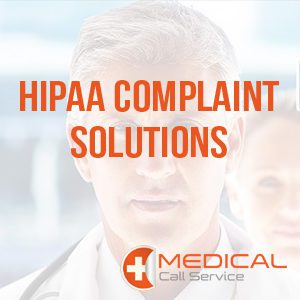
Top 5 Questions to Ask Before Hiring a Medical Answering Service
In the fast-paced world of healthcare, medical answering services have become an essential component of patient care and administrative efficiency. These services not only manage incoming calls but also ensure that critical communication between patients and healthcare providers is handled with the utmost care and professionalism. Choosing the right medical answering service is pivotal because it directly influences patient satisfaction, operational efficiency, and compliance with healthcare regulations.
Question 1: What is your experience with medical accounts?
When outsourcing your medical answering needs, the experience of the service provider in handling medical accounts cannot be overstated. It’s not just about answering calls; it’s about understanding the nuances of medical inquiries and handling sensitive patient information with the expertise it demands.
Why Experience Matters
The experience of an answering service in the medical field ensures that they are familiar with the common challenges and unique demands of healthcare communications. Experienced providers will have a deeper understanding of medical terminology, patient privacy issues, and the urgency associated with medical calls, which can greatly affect the quality of service delivered.
Key Indicators of a Good Track Record
Here are a few indicators that can help you gauge the experience level of a medical answering service:
- Years in Operation: Generally, a longer track record suggests more reliability and a refined service model.
- Clientele: Look at their current and past clients. Services that are used by reputable healthcare facilities are likely a safer bet.
- Case Studies: Credible answering services often provide case studies or testimonials that showcase their problem-solving capabilities in real-world scenarios.

Question 2: How do you ensure HIPAA compliance?
The Health Insurance Portability and Accountability Act (HIPAA) sets the standard for protecting sensitive patient data. Any medical answering service you consider should not only be familiar with HIPAA requirements but also have robust measures in place to ensure compliance.
Understanding HIPAA Compliance
HIPAA compliance is essential for safeguarding patient privacy and maintaining the confidentiality of medical information. An answering service that complies with HIPAA standards will help prevent data breaches and protect your practice from compliance violations, which can lead to severe penalties.
Compliance Strategies to Look For
When evaluating potential medical answering services, consider the following strategies they should use to maintain HIPAA compliance:
- Employee Training: Regular training programs should be in place to educate all employees about HIPAA regulations and the importance of patient data security.
- Secure Technologies: Use of encrypted communication channels, secure data storage solutions, and regular security updates are essential for maintaining compliance.
- Privacy Policies and Procedures: Detailed policies should govern how patient information is handled and shared, ensuring compliance at all touchpoints.
Probing for Compliance Depth
During your evaluation, ask specific questions to determine how deeply the service understands and implements HIPAA guidelines:
- How often do you conduct HIPAA compliance training?
- Can you provide details on the technologies you use to secure patient data?
- What are your protocols for dealing with a data breach?
These questions will help you assess the answering service’s commitment to compliance and its ability to protect your patients’ sensitive information.

Question 3: Can you provide 24/7 answering services?
Healthcare doesn’t adhere to regular business hours. Medical emergencies, patient concerns, and critical inquiries can arise at any time, making it essential for a medical answering service to offer 24/7 availability.
The Importance of Round-the-Clock Service
Continuous answering service availability ensures that your patients can always reach a helpful and informed representative, regardless of the hour. This not only enhances patient satisfaction by providing them with immediate assistance but also supports your medical staff by reducing their after-hours workload.
Considerations for 24/7 Availability
Here are several aspects to consider when evaluating whether an answering service can effectively manage your calls around the clock:
- Staffing: Ensure that the service has enough trained personnel to handle call volumes during nights, weekends, and holidays without a drop in quality.
- Technological Support: Adequate technology and backup systems must be in place to handle incoming calls smoothly and without interruptions, even during peak times or unforeseen circumstances.
Assessing Service Effectiveness
To gauge the effectiveness of a 24/7 answering service, consider asking:
- How do you manage high call volumes during off-hours?
- What measures do you have in place to ensure continuity of service during power outages or system failures?
These insights will help you understand the service’s capacity to handle your needs anytime, thereby safeguarding your patients’ ability to obtain critical support whenever they need it.

Question 4: How do you handle emergency calls?
The ability to effectively manage emergency calls is a critical criterion for any medical answering service. Proper handling can be the difference between life and death, making it essential to understand the service’s protocols and training in this area.
Importance of Effective Emergency Call Handling
Emergency call handling requires prompt, accurate, and professional response. The answering service must be equipped to quickly distinguish between routine calls and those requiring immediate attention, ensuring that emergency situations are escalated to the appropriate medical personnel without delay.
Protocols and Procedures
It’s important to examine the specific protocols an answering service uses for emergency calls. Here are some key considerations:
- Call Triage Systems: Effective triage systems help in quickly identifying and prioritizing emergency situations.
- Training and Qualifications: Staff handling calls should be specifically trained in recognizing and responding to medical emergencies.
- Communication Lines: Ensure there are clear and direct lines of communication to your practice’s on-call doctors or emergency services.
Questions to Assess Emergency Preparedness
To thoroughly evaluate how an answering service deals with emergencies, consider asking the following:
- What is your protocol for identifying and escalating emergency calls?
- Can you describe the training your staff undergoes to handle such situations?
- How do you ensure that emergency calls are given priority over non-urgent inquiries?
These questions will help you determine if the answering service is capable of handling critical situations with the necessary urgency and professionalism.

Question 5: Can you integrate with our existing systems?
The ability of a medical answering service to integrate seamlessly with your current medical practice management software and systems is crucial for maintaining efficiency and ensuring that patient information is handled correctly and securely.
The Need for Seamless Integration
Effective integration allows for smooth transitions of data between the answering service and your practice’s systems. This can lead to improved patient management, accurate record-keeping, and better overall service delivery. Integration also helps in maintaining the continuity of information, which is vital for follow-ups and ongoing patient care.
Challenges and Solutions in Integration
Integration can present challenges, particularly if your systems are complex or use outdated technology. However, a competent answering service should be able to address these challenges with innovative solutions:
- Customization Capabilities: Look for services that offer customizable solutions that can be tailored to fit the specific needs of your practice.
- Technology Compatibility: Ensure that the answering service has experience working with a variety of software platforms and can adapt to your specific technology stack.
Assessing Integration Capabilities
To effectively evaluate an answering service’s ability to integrate with your systems, consider asking:
- What experience do you have with integrating into existing practice management systems?
- Can you provide examples of custom integrations you have performed in the past?
- How do you handle data security during the integration process?
These questions will help you gauge whether the answering service is capable of effectively integrating with your systems without disrupting your existing workflows.
Choosing the right medical answering service is a crucial decision for any healthcare provider. By asking the right questions about their experience, HIPAA compliance, 24/7 availability, emergency call handling, and system integration capabilities, you can ensure that the service you select will meet the high standards required for effective and reliable patient communication. The right service will not only enhance the efficiency of your practice but also improve patient satisfaction by ensuring that their needs are met promptly and professionally.

Leave a Reply